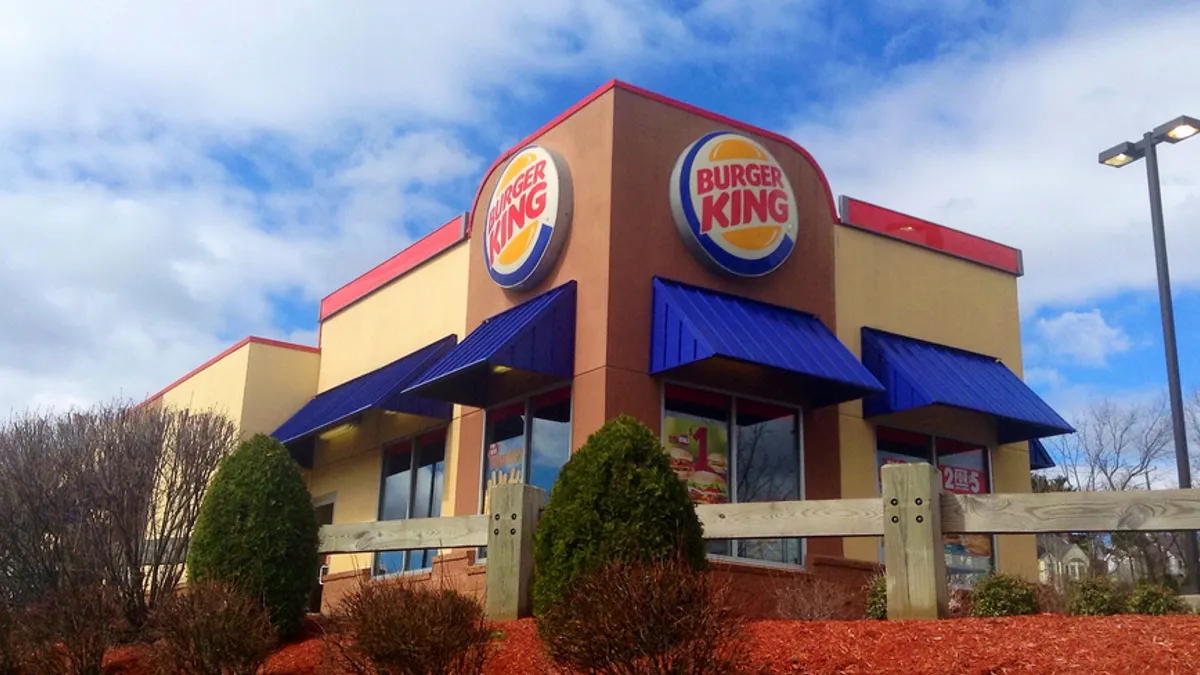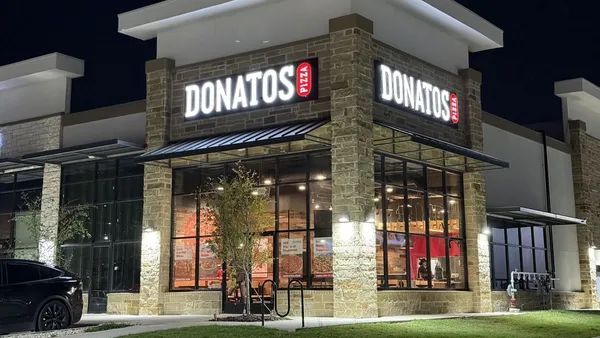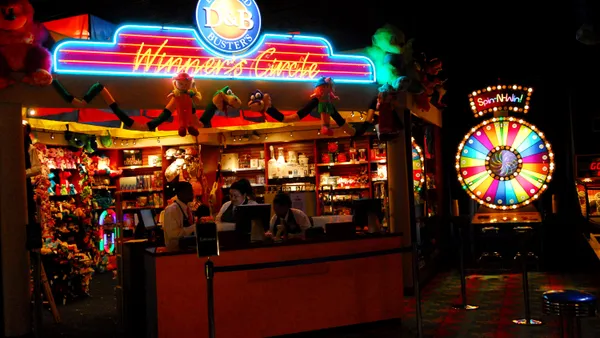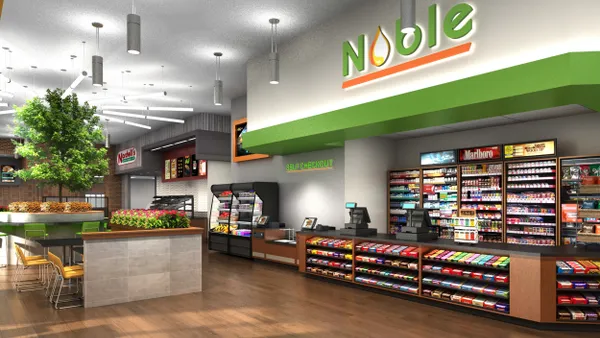Dive Brief:
- Burger King will upgrade hundreds of its stores with double drive-thru lanes, digital menu boards outside, self-order kiosks inside and a more open kitchen, changes the company called "Burger King of Tomorrow," reported Nation's Restaurant News. About 100 stores across the U.S. already sport the new design with hundreds more underway in the fourth quarter.
- Daniel Schwartz, CEO of parent company Restaurant Brands International, which also owns Tim Horton’s and Popeye’s, spoke about the upgrades during a Q3 earnings call on Wednesday, but didn't share an exact timeline for widespread renovations. He did note that franchisees will receive royalty breaks for renovating ahead of their contract.
- RBI saw impressive sales growth since last fall at 13.8%, but most can be attributed to opening more locations across its brands. Burger King added more than 900 stores over the past year, but same-store growth slowed to 1%, missing estimates of a modest 1.5% gain, compared to last year's Q3 growth of 3.6%.
Dive Insight:
Over the past year, Burger King has actively tried to best its competitors in a tight fast food market. Despite big moves — from launching a payment app and delivery to creating popular marketing campaigns that "hack into" the national conversation — the chain has struggled to draw consistent store traffic.
Burger King is not alone. Both Popeye's and Tim Horton's, who are owned by RBI as well, face the same issue despite adding 200 and 100 stores, respectively. More troubling perhaps for their parent company though is that while RBI reported system-wide sales of $1.375 billion in Q3, same-store sales lagged behind competitors. In the fight for customers, it looks like McDonald's might be winning. McDonald's, which released its earnings on Oct. 23, aligned with analyst estimates by gaining 2.4% in comparable sales, beating profit and revenue expectations and boosting its stock price.
With its announcement yesterday, Burger King signals its continued focus on upgrading technology, a necessary but fairly common strategy in the current market. Over the last year, the company hired a "tech czar" and partnered with DoorDash and Grubhub on delivery internationally and now in the U.S. With "Burger King of Tomorrow," new stores plan to offer modern amenities inside and out. Right now a majority of Burger King's sales happen at the drive-thru, where the chain ranked first in a QSR study for speed of service at just over three minutes. Double-drive thru lanes and digital boards will make outside ordering even faster. Inside, customers can soon order from self-order kiosks at hundreds of stores.
To gain ground against not only the McDonald's and Wendy's of the world, but the growing number of smaller fast-casual burger joints, Burger King will likely have to expand beyond its latest technology campaign. Its biggest rival McDonald's has made many of the same improvements — and often earlier than Burger King — and no doubt others will soon follow suit. In fact, McDonald's has a distinctly similar campaign, "Experience of the Future," that launched earlier this year, which looks to upgrade its digital services. The improvements, which may be streamlining operations, have come at a price though. Many franchisees are disgruntled at slow growth after spending thousands on tech-driven renovations. This is something Burger King looks to alleviate with its royalty breaks.













